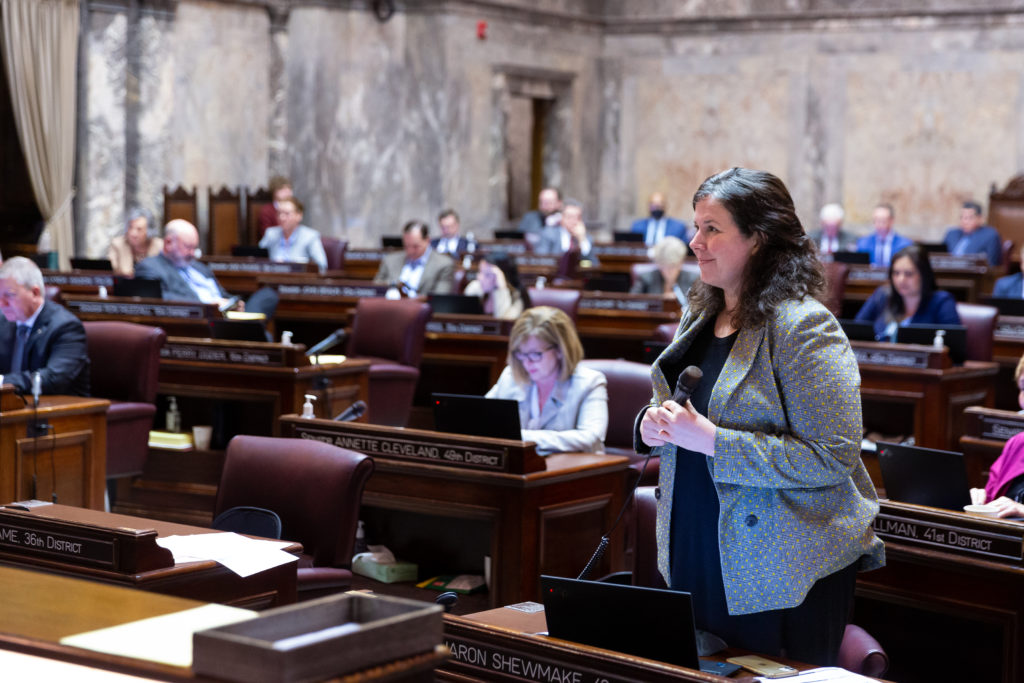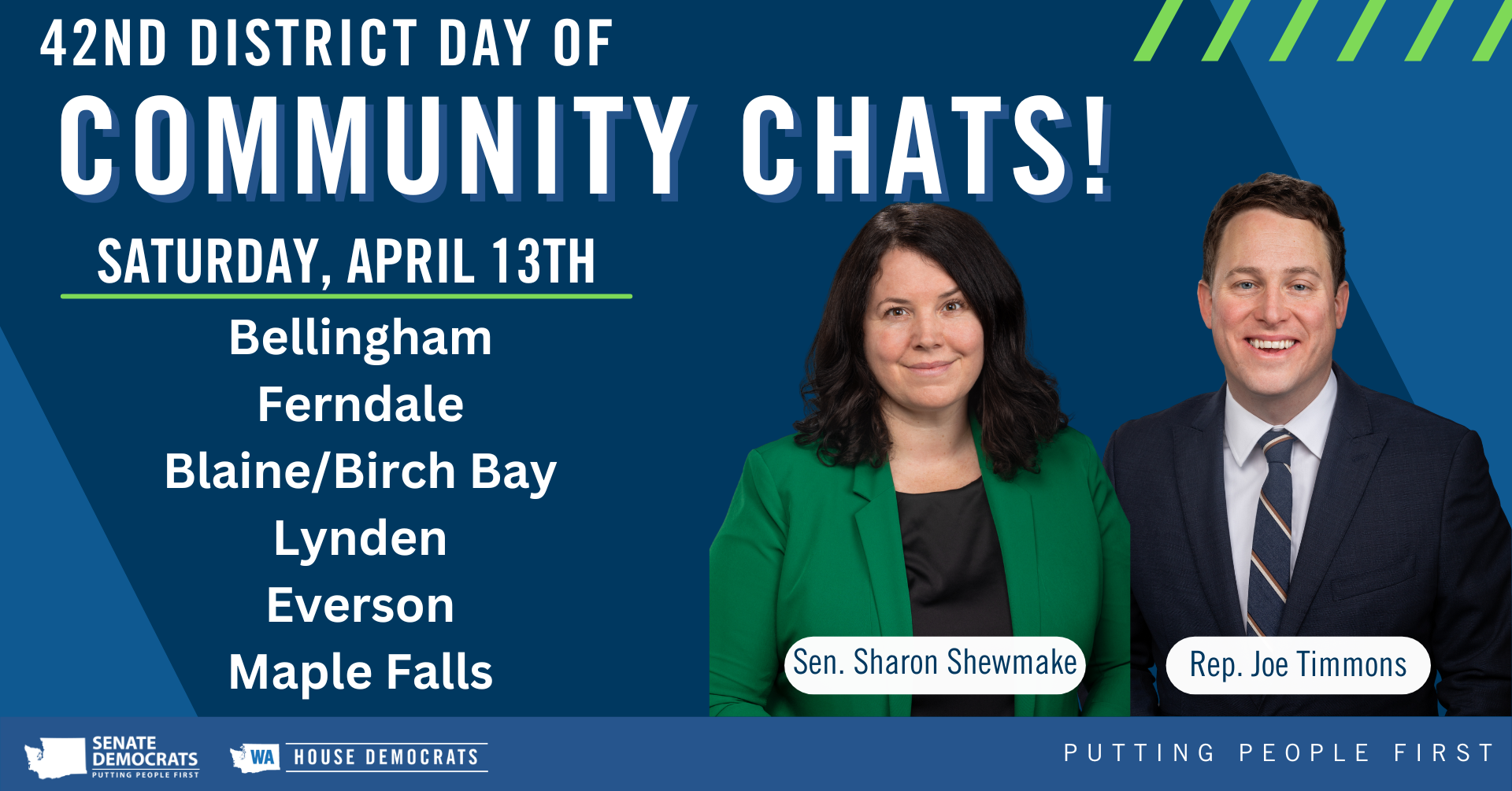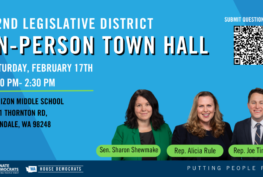Dear friends and neighbors,
I support a woman’s right to choose, but not everyone does, and anti-abortion activists continue to look for new ways to restrict reproductive healthcare. You may have heard about the judge in Texas who’s expected to order the Food and Drug Administration to rescind its approval of mifepristone, a drug used in nearly 60% of all abortions in our state. If this ruling stops the manufacture of mifepristone, then access to mifepristone – a drug used not just for abortions but also miscarriages, ectopic pregnancies and more – could be lost for women who need it, even here in Washington where we have strong protections for reproductive health.
Fortunately, we are acting to ensure a safe and secure supply of mifepristone. We have ordered and have received 30,000 doses of mifepristone – about a three-year supply. The University of Washington Medical Center has ordered another 10,000 doses. Now we’re doing emergency legislation to make sure there’s a legal pathway to get these doses out to health clinics, who can then provide it to women, even if this Texas judge forces the FDA to shut down manufacturing.
Mifepristone is an essential health care option, not just for abortion, but also for helping to treat miscarriages and other health problems that can disrupt a pregnancy. You can read more about it here – I’m glad that we’re not just talking about abortion, but doing the work to make sure we’re really helping women out.

No silly pictures in this week’s e-newsletter – just serious stuff today! We’re busy on the floor right now, debating and voting on bills sent over from the House. I’m excited to be able to help pass some of the legislation that my seatmates Rep. Alicia Rule and Rep. Joe Timmons sponsored!
Helping Food Banks
Earlier this session I heard concerns from Mike Cohen, executive director of the Bellingham Food Bank:
When pandemic benefits such as free school lunch for all and child tax credit ended visits to our food bank grew at unprecedented rates. In 2002 visits more than doubled when compared to our census just before and during the height of COVID-19. We used to average 1,700 household visits a week. In 2022 we averaged 3,5000 hundred visits per week. The doubling of families in need came at a time when our partners who used to provide significant amounts of free food (Northwest Harvest, Food Lifeline and the USDA Commodity Food Program) all struggled. Sadly, we are receiving a lot less food from these partners. This resulted in our food bank buying LOTS of food. In 2022. We spend more than $4,000,000 on food.
We were able to purchases this much food due to an emergency surplus that we established for situations just like this. However, we don’t have the funds that will allow for this type of spending in 2023. It’s important to know that when our number of shoppers grow, we receive NO increase in funding from any governmental entity. Our funding from federal, state, city and county sources makes up less than 30% of our revenue. We will cut our food spending in 2023 by 25%. This means we are considering incredibly tough choices that will impact families who shop at our food bank each week. We are considering ending the purchase of items such as baby food, eggs, and bananas.
You might have read similar concerns in this recent article by Ron Judd in the Cascadia Daily News about the need for government to step up and support our local food banks, and I wanted to share a bit about what we’re doing here at the state level.
When I heard from Mike Cohen, I immediately contacted my fellow legislators from Whatcom County and anti-hunger advocates in the legislature. I worked with Rep. Mia Gregerson of Sea-Tac to figure out what are the most effective ways to get food to people in need and we agreed that an “early action” bill to send an immediate $28 million out to our food banks and nutrition services for seniors was necessary. I expect Gov. Inslee to sign that bill into law any day now. This won’t alleviate all of our food banks’ challenges alone – local and federal partners should contribute too, as well as individual and philanthropic donors – but I’m glad that the state is doing its part.
Thanks as always for reading, and please keep in touch! We’ve got just a few weeks left in session, so we’re really getting into crunch time to find agreement on the big challenges facing Washington. Whether it’s the state budget, public safety, funding our schools, or whatever, I’m always happy to hear from you at Sharon.Shewmake@leg.wa.gov. Thank you for reading and let’s keep in touch!

Sen. Sharon Shewmake



